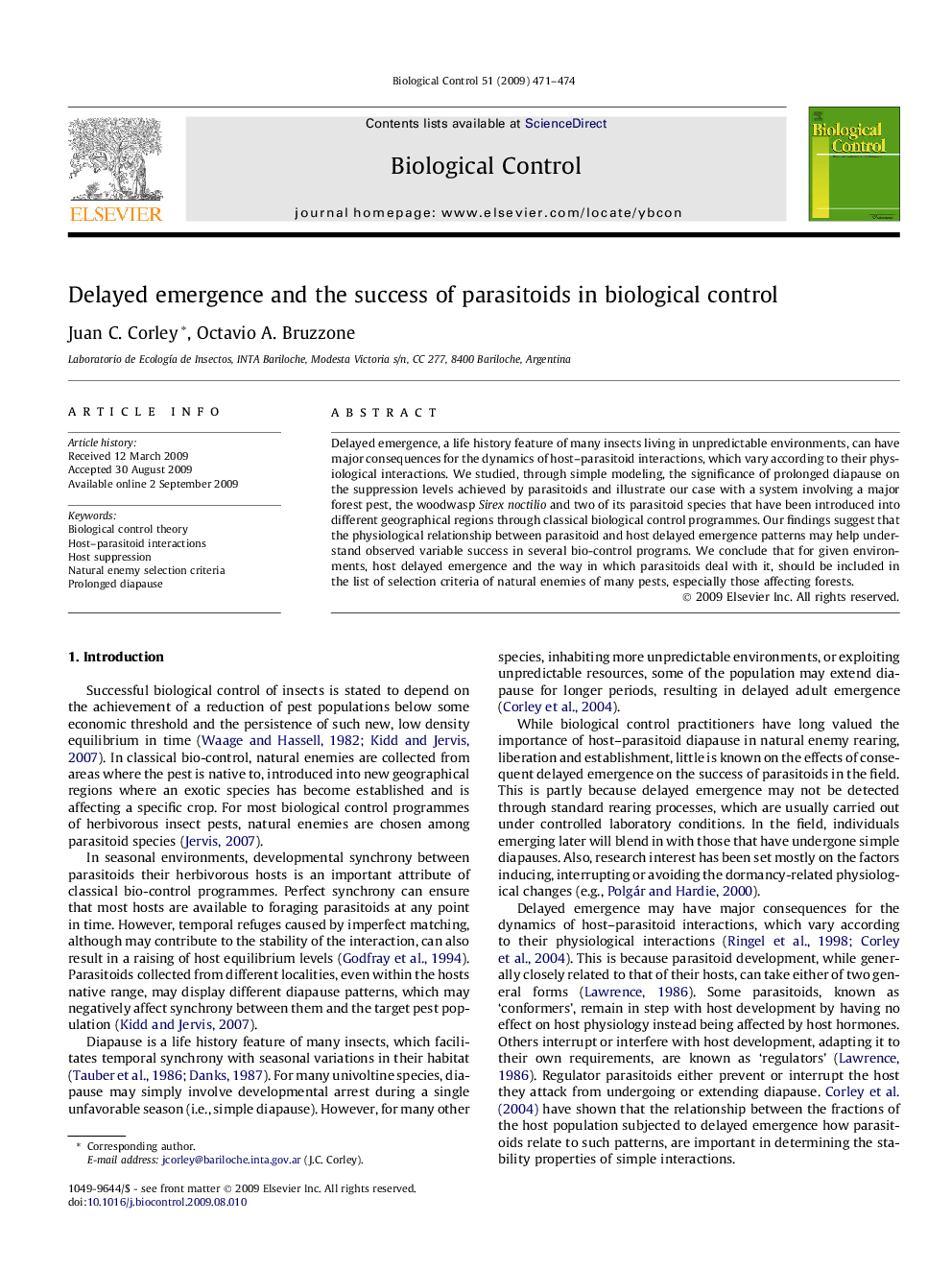| Article ID | Journal | Published Year | Pages | File Type |
|---|---|---|---|---|
| 4504550 | Biological Control | 2009 | 4 Pages |
Delayed emergence, a life history feature of many insects living in unpredictable environments, can have major consequences for the dynamics of host–parasitoid interactions, which vary according to their physiological interactions. We studied, through simple modeling, the significance of prolonged diapause on the suppression levels achieved by parasitoids and illustrate our case with a system involving a major forest pest, the woodwasp Sirex noctilio and two of its parasitoid species that have been introduced into different geographical regions through classical biological control programmes. Our findings suggest that the physiological relationship between parasitoid and host delayed emergence patterns may help understand observed variable success in several bio-control programs. We conclude that for given environments, host delayed emergence and the way in which parasitoids deal with it, should be included in the list of selection criteria of natural enemies of many pests, especially those affecting forests.
